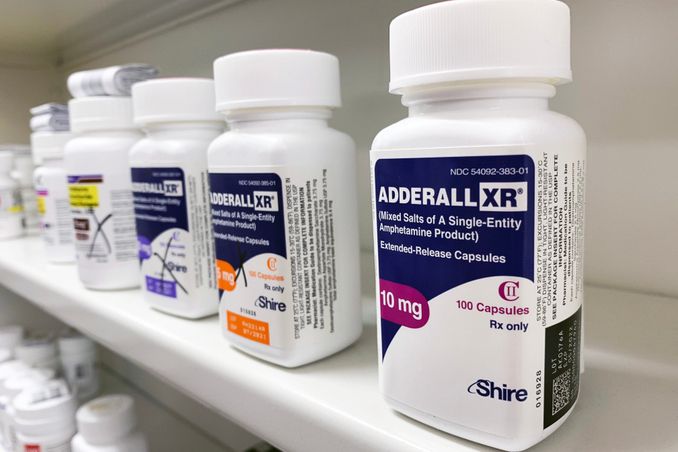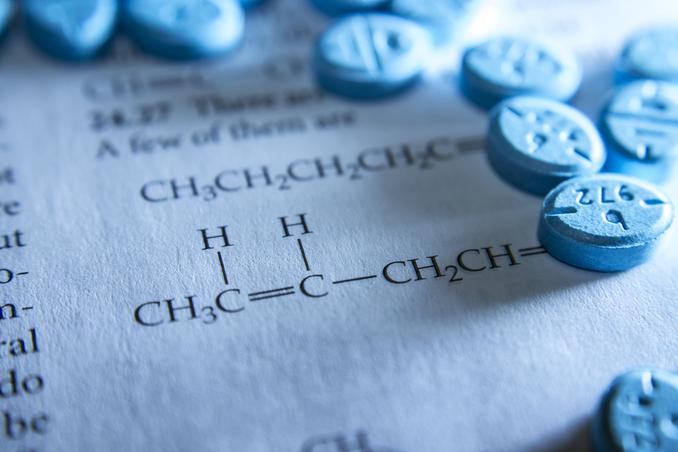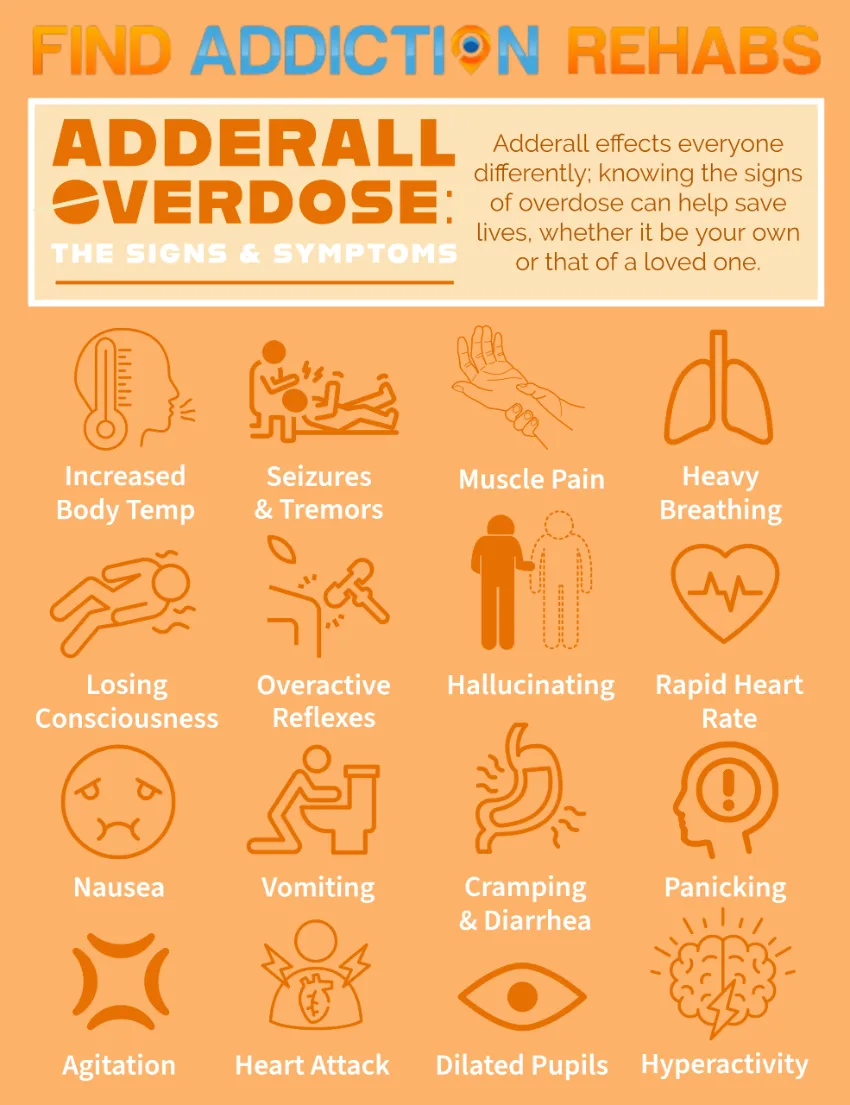The Risk of Adderall Overdose
Table of Contents
- The Risk of Adderall Overdose
- What is Adderall?
- Forms of Adderall
- How Does Adderall Work?
- Symptoms of an Adderall Overdose
- Why Overdose Happens
- What to do When Overdose Happens
- Be Honest With Doctors
- Withdrawal From Adderal
- What Happens and Why?
- Symptoms of Withdrawal
- Duration of Withdrawal
- Prolonged Withdrawal Symptoms: Adderall vs. Adderall XR
- Drug Interactions With Adderall
- Can Happen to Anyone
- Drug Interactions With Adderall
- What You Need to Know
- Long-Term Help
Overdose is completely a serious concern when it comes to Adderall. Your risk of an Adderall overdose depends on many factors such as the type of Adderall (XR vs instant release) your regular dose, your age, if you have taken other substances or medications, and if it was your medication or someone else. This article answers definitively the question, “Can you overdose on Adderall?”
Unfortunately, there is no set dose at which Adderall overdose symptoms and signs occur, nor when a person will overdose. The effects of a high dose of the medication will vary among individuals.

What is Adderall?
Attention deficit hyperactivity disorder, or ADHD, is often diagnosed in childhood and early adolescence. There are at least 6.4 million people between the ages of four and 17 who have been diagnosed with the disorder. If you suffer from ADHD you may have issues with:
- Impulsivity
- Hyperactivity
- Trouble focusing
Stimulants such as Adderall are used to help restore the balance of the brain’s chemical messengers and treat ADHD. Despite this, many people choose to use Adderall as a method to lose weight, or even to stay awake for long periods of time.
Adderall is considered a Schedule II prescription drug by the DEA. This means they consider there to be a high potential for Adderall abuse and a high risk for physical and psychological dependence on Adderall.
Forms of Adderall
Adderall is available in a variety of dosage amounts. These are created in immediate-release tablets or extended-release capsule forms. Every medication has its side effects, and Adderall is the same. Stimulants always increase heart rate, body temperature, and blood pressure. They can also decrease appetite and sleep functions, features that make it easier to take more than the prescribed amount and raise the possibility of Adderall overdose.

How Does Adderall Work?
This drug affects the neurotransmitter dopamine, which controls pleasure and attention. This chemical change can increase the appeal for those who use this drug recreationally. For those with Adderall abuse issues, the pill can be crushed then snorted. Snorting Adderall sends the drug into the bloodstream faster. This also increases the hazardous side effects and potential for a fatal overdose.
Symptoms of an Adderall Overdose
Signs and symptoms of potential Adderall overdose include:
- Hyperactivity
- hallucinations
- Agitation
- Rapid heart rate
- panic
- Overactive reflexes
- Muscle pains
- Nausea and vomiting
- Diarrhea
- Abdominal cramping
- Rapid breathing
- Increased body temperature
- Tremors, seizures, or convulsions
- Dilated pupils
- Loss of consciousness
Taking a high dose of Adderall can also affect the heart rhythm, which causes an irregular heartbeat. Eventually, this can lead to a heart attack in severe overdose.
Why Overdose Happens

There is a misconception that prescription drugs are safer than street drugs. Unfortunately, this may be why Adderall is so heavily abused. Although most people do not believe this, you can overdose on Adderal, even at low doses and sometimes even fatally.
The symptoms of Adderall are often followed by depression and fatigue. An Adderall overdose can lead to a stroke, seizures, or irreversible brain damage. If you suspect an overdose of Adderall, please seek immediate medical care, and follow up with a plan for Adderall addiction treatment when indicated by the circumstances.
What to do When Overdose Happens
If you believe that you or someone you know has overdosed, you should call 911 or seek emergency help immediately. If you call for someone else while waiting for the emergency services, you may also want to gather the following information:
- Their age
- Overall health status and medication history
- History of drug use
- How much Adderall they took
- Whether they are allergic to other medications
- Whether they took any other drugs or drank alcohol

Be Honest With Doctors
If you or someone else has overdosed on Adderall, it is important, to be honest to the doctors or first responders. Withholding information about a situation such as ingested illegal substances can put your life in danger.
When an overdose occurs, the medical team will try to minimize the damage that has occurred during the overdose. They will also work to reduce the risk of life-threatening complications. To do that, they need all of the available information.
It is also important that you do not attempt to sleep the Adderall overdose away. You should also never force yourself to vomit without speaking to a doctor. Calling an ambulance is the best course of action.
Withdrawal From Adderal
After Adderall leaves the system, you may experience withdrawal symptoms. This process can last anywhere from a few days to a few months, and it should be managed under medical supervision. Going to a detox facility can help manage the more uncomfortable withdrawal symptoms.
When you take large doses of Adderall for long periods of time, you run the risk of becoming physically dependent on the drug. When this happens, your tolerance builds up. This means that it will take larger doses to get the same effects as before.
What Happens and Why?
When this happens, you may feel like Adderall no longer does what it is “supposed to do.” If you take it recreationally, then you may no longer get the high feelings that you want. When you stop taking the drug, your most likely won’t be able to think or function normally. These are the first stages of withdrawal. Withdrawal usually only affects you if you took it at high doses over a long period of time.
Adderall withdrawal is a result of the body recalibrating itself. Although it is not always dangerous, it can prompt suicidal thoughts.
Symptoms of Withdrawal
The symptoms of withdrawal from Adderall are the opposite of the drug’s effects. While Adderall increases concentration, euphoria, and energy, during withdrawal, you will experience a crash follows.
If you have a higher tolerance for Adderall or have taken enough of the drug to have an Adderall overdose, then you may have a more severe withdrawal period.
Common withdrawal symptoms include:
- Depression
- Irritability
- Headaches
- Oversleeping
- Insomnia
- Increased appetite
- Fatigue
- Nightmares
- Difficulty concentrating
- Achiness
- Anxiety
- Suicidal thoughts
When withdrawing from regular Adderall usage or the event of an Adderall overdose you may even feel slow and mentally foggy. Without the drug, you can feel stupid, unable to focus, or have issues with thought completion. It may even make you shy or anti-social. You may feel as though you lost the person you once were.
Duration of Withdrawal
The duration of withdrawal from Adderall will be different for everyone. Some people may stop experiencing symptoms in as little as five days. For others, it may take up to three weeks or more.
The biggest factors that affect the duration of withdrawal are
- Dose taken
- Frequency Adderall is used
- Time you took the drug
For example, if you took a large dose, more often, and for longer periods of time, you can expect to have a longer length of withdrawal symptoms.
Prolonged Withdrawal Symptoms: Adderall vs. Adderall XR
There are two common types of Adderall, instant, and extended-release. Regular Adderall is an instant-release drug. This generally lasts for up to six hours, while Adderall XR (extended-release) is supposed to work for 24-hour use. The duration of withdrawal varies for these drugs.
This is because regular Adderall starts working immediately. The effects will wear off over a few hours, and it leaves your body quickly. Adderall XR builds up and stays in the body longer.
Drug Interactions With Adderall
Adderall can interact with alcohol, drugs, and medications in potentially dangerous ways. Some people believe that Adderall’s stimulant effects can balance each other out. The alcohol’s depressant effects can counteract the feelings of other drugs, but it can actually make the effects of depressants and alcohol more dangerous.
It can make it difficult to feel the effects of alcohol or depressants which gives you a higher chance to overdose or get alcohol poisoning. In addition, both alcohol, other drugs, and Adderall can affect the heart. This increases the risk for heart arrhythmias, heart attacks, high blood pressure, and stroke.
Can Happen to Anyone
These serious effects can happen even in young, otherwise healthy people. It is important to recognize that these risks can happen to young people, or to anyone for that matter. Even if you have a legitimate prescription for Adderall.
Drug Interactions With Adderall
Adderall can interact with many other medications such as:
- Alkalinizing agents, such as sodium bicarbonate (baking soda)
- Tricyclic antidepressants
- Serotonergic drugs, such as selective serotonin reuptake inhibitors (SSRIs)
- Monoamine oxidase inhibitors (MAOIs)
- Antihistamines
- Medications for high blood pressure
- Chlorpromazine, a medication for schizophrenia

What You Need to Know
It is never advisable for people to take medication that a doctor has not prescribed for them. This includes Adderall and any other drug. Despite this, when going to a doctor, you need to explain to them any drugs you take continuously.
Doctors will not report you to the police. Instead, they can help monitor your use, and assess any risk according to your personal medical situation. They can also avoid prescribing a medication that might cause harmful interactions.
Long-Term Help
It takes time for your brain to recover from the effects of a drug like Adderall. If you have been prescribed the drug or are addicted recreationally, you will experience intense emotional upheaval. Not only can you suffer from an Adderall overdose, but it can also become a clear danger if used regularly and its consumption develops into addiction. This will need to be taken care of and balanced.
Support groups, individual and group therapy, as well as family therapy, can be extremely helpful as tools in the addiction treatment and rehabilitation process. Contact us at Find Addiction Rehabs to get help today.
Charles F. has been an active part of the Florida recovery community for over 5 years. He began as a behavioral health technician at an addiction treatment facility in Ocala, Florida and has since begun training as a Licensed Addiction and Chemical Dependency counselor in Boca Raton. Charles’ passion involves the promotion of recovery and helping spread the hope of recovery to as many readers as possible!


